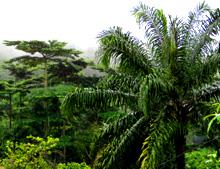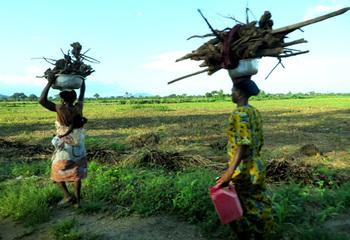Context
Forests are of vital importance to Togo’s rural population, which comprises around four million of the total population of seven million people. The country’s forest area, however, is shrinking dramatically. Over the past 25 years, the annual deforestation rate has increased from 3.4 per cent to 5.8 per cent, while the average in West and Central Africa is 0.46 per cent. The causes of deforestation are diverse: new areas are being used for agriculture, and the harvesting of wood for fuel and charcoal production as well as unsustainable logging for timber are increasing. In addition, the land rights situation is uncertain.
The Ministry of Environment and Forest Resources (MERF) is responsible for this sector and is participating in the financial mechanism of payments for reducing emissions from deforestation and forest degradation (REDD+) of the UN Framework Convention on Climate Change (UNFCCC). MERF has already adopted a variety of policies, programmes and action plans dealing with the environment and nature conservation, rural development, food security, energy and climate change.
In order for Togo to successfully utilise the REDD+ mechanism, the technical and institutional conditions for implementation must be improved, various measurement, reporting and verification standards for the development of forest areas and forest quality must be met, and emissions from deforestation and forest degradation must be verifiably reduced.
Objective
The technical and institutional conditions for implementing REDD+ and rehabilitating forests in Togo are measurably improved.
Approach
The programme is supporting the Ministry of Environment and Forest Resources (MERF) in addressing fundamental deficits in the conservation and rehabilitation of forests, and in rolling out sustainable forestry practices. The aim is to ensure successful participation in the REDD+ mechanism (REDD Readiness). To this end, Togo is participating in the World Bank’s Forest Carbon Partnership Facility. The programme is based on the key strategic pillars under Togo’s Readiness Preparation Proposal. These include the creation of a national forest inventory, the setting of reference levels for forest carbon storage, and the development of a measurement, reporting and verification system for emissions reduction.
The programme is working at national, regional and local level with state and civil society actors in order to develop the capacities required for forest rehabilitation and successful participation in the REDD+ process.

